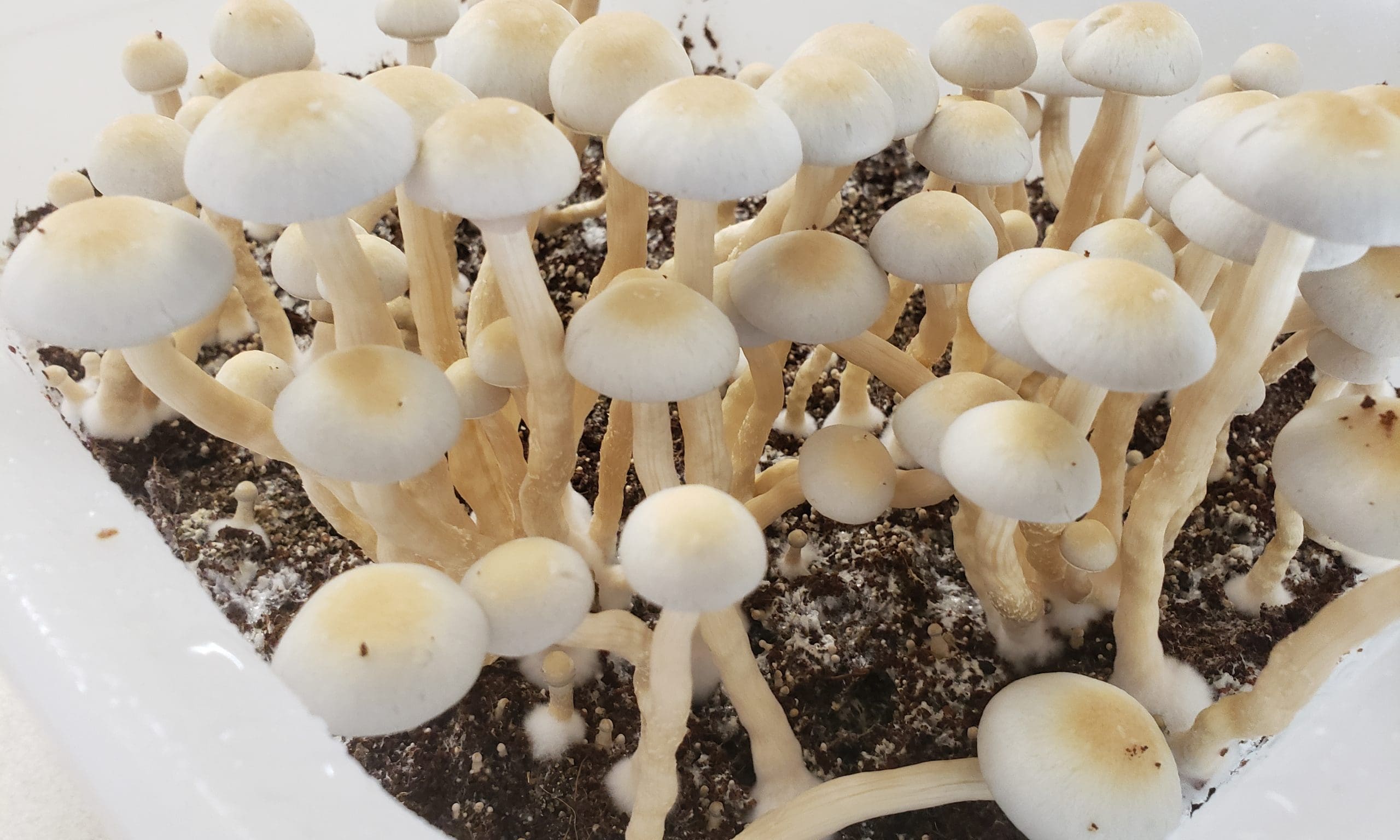Politics
California Psychedelics Legalization Bill Is Officially Heading To Governor’s Desk After Final Senate Passage

A California bill to legalize certain psychedelics for adults 21 and older is officially on its way to the governor’s desk.
On Thursday, the Senate voted 21-14 to concur with Assembly amendments that were adopted after the originating chamber initially passed the bill from Sen. Scott Wiener (D) earlier this year. The finalized measure is now being transmitted to Gov. Gavin Newsom (D), who has not publicly said where he stands on the reform.
The passage of the legislation is a significant win for advocates, military veterans and first responders who helped raise attention to the therapeutic potential of substances like psilocybin and mescaline, as well as the consequences of criminalization.
The bill would legalize the possession and personal cultivation of certain entheogenic plants and fungi for adults starting on January 1, 2025. A workgroup would be established under the California Health and Human Services Agency (CHHSA) to study and make recommendations on establishing a regulatory framework to access the substances for therapeutic and facilitated use.
“This is a well-crafted, targeted bill to stop criminalizing people who are using these substances, including for health purposes,” Wiener told Marijuana Moment on Thursday. “I’m so grateful to my colleagues for their support, and I look forward to making the case to the governor that the bill deserves his signature.”
BREAKING: Our bill to decriminalize personal possession & use of mushrooms & several plant-based psychedelics (SB 58) just received final approval from the Senate & is heading to the Governor!
— Senator Scott Wiener (@Scott_Wiener) September 7, 2023
On the floor, the senator noted that “SB 58 received bipartisan support in the Assembly” and described compelling testimony the legislation received in committee from first responders who benefited from the use of psychedelics.
Newsom has long criticized the war on drugs and was among the most prominent politicians to champion adult-use marijuana legalization at a time when other elected officials shied away from embracing reform. But his position on psychedelics is unknown, and he’s also faced criticism from reform advocates after vetoing a bill last year that would have established a pilot program for safe drug consumption sites in the state. That measure was also sponsored by Wiener.
“We respect the legislative process and don’t typically comment on pending legislation,” a spokesperson for Newsom told Marijuana Moment on Thursday. “The governor will evaluate the bill on its merits when it reaches his desk.”
The legislation was amended in several ways in the Assembly. For example, ibogaine was removed from the list of drugs that would be legal to possess and cultivate. The possession limit was also reduced as from amounts in the original Senate bill, and the effective date of the legalization provisions were pushed back until 2025 to give the workgroup time to develop recommendations for a regulatory framework.
The “allowable amount” section of the bill as amended allows for the following psychedelics possession limits:
- Mescaline: 4 grams
- DMT: One gram
- Psilocybin: One gram, or up to one ounce of “a plant or fungi containing psilocybin”
- Psilocyn: One gram, or up to one ounce of “a plant or fungi containing psilocyn.”
It also says that adults could possess an “amount of spores or mycelium capable of producing an allowable amount of a plant or fungi which contain a controlled substance” that would be legalized under the bill.
Beside personal possession and cultivation being legalized, the bill would also specifically provide for “community-based healing” involving the entheogenic substances. It previously included “group counseling” as well, but an author’s amendment that was adopted in June removed all references to counseling. It also made a series of technical changes to clean up the legislation.
The legislation’s provisions around the transfer of covered psychedelics without remuneration were also recently revised, making it so people could share the substances within the context of therapeutic or facilitated use. Advocates had hoped that gifting would be more broadly legalized outside of regulated settings, but it appears that would remain prohibited without further legislative action.
This marks the second time that Wiener has championed psychedelics legalization legislation after an earlier version passed the Senate but stalled out in the Assembly last session. Unlike that prior version, this latest bill excludes synthetic psychedelics like LSD and MDMA from the list of substances that would be legalized and focuses only on those that are derived from plants or fungi.
When the prior version of the legislation was in jeopardy near the end of the 2022 session, Wiener sought to make a deal to save it by removing synthetics in an attempt to shift law enforcement organizations from being opposed to neutral on the bill. That move was opposed by advocates and ultimately did not produce a passable proposal.
Peyote is also excluded from the bill’s legalized substances list, which is responsive to concerns raised by some advocates and indigenous groups about the risks of over-harvesting the vulnerable cacti that’s been ceremonially used.
Asked whether he expects Newsom to support the legislation this session, Wiener told Marijuana Moment in June that “it’s unclear to me,” as the governor is “not expressing any opinion pro or con.”
—
Marijuana Moment is tracking more than 1,000 cannabis, psychedelics and drug policy bills in state legislatures and Congress this year. Patreon supporters pledging at least $25/month get access to our interactive maps, charts and hearing calendar so they don’t miss any developments.
![]()
Learn more about our marijuana bill tracker and become a supporter on Patreon to get access.
—
Meanwhile, the Assembly Appropriations Committee also recently approved a Senate-passed bill that is meant to bolster protections for workers who use cannabis off the job. The panel adopted technical amendments to the measure from Sen. Steven Bradford (D), however, so it will go back to the Senate for concurrence if it is approved by the full Assembly.
The bill would build on existing employment protections enacted last session that bar employers from penalizing most workers for using cannabis in compliance with state law off the job.
Separately, state Attorney General Rob Bonta (D) announced a new program last month aimed at curtailing the illicit market, and he also argued that the high tax rate for cannabis in the state is partly to blame for why illegal sales are continuing.
Bonta’s office has also been soliciting input from local government and cannabis industry groups as it works to finalize an opinion on the potential legal risks of authorizing interstate marijuana commerce under ongoing federal prohibition, documents obtained by Marijuana Moment show.
New York Senate Marijuana Committee Schedules Hearing To Address Challenges For Legalization Rollout
















